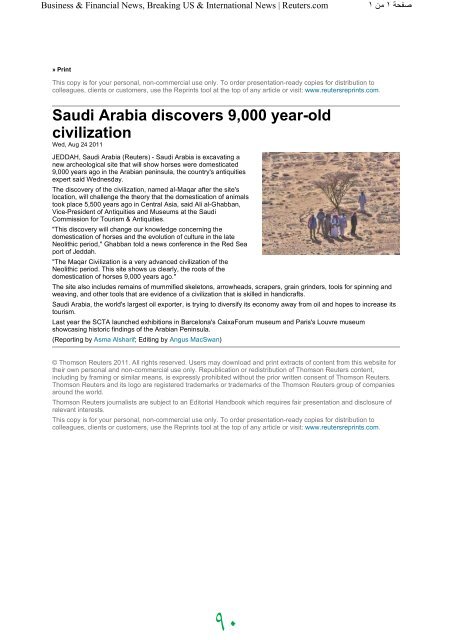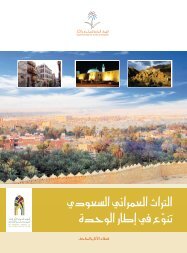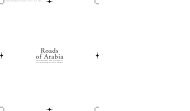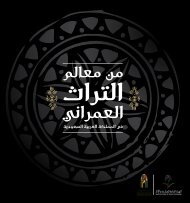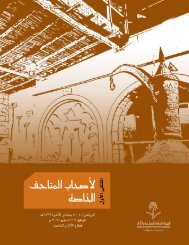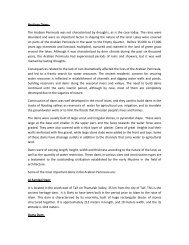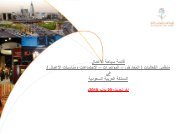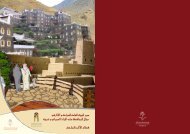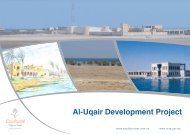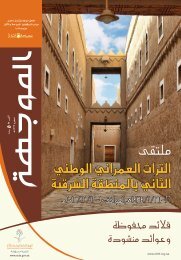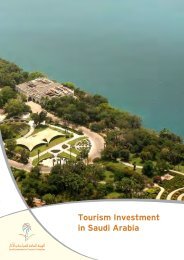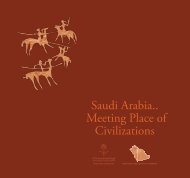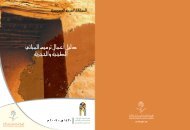ﺧïºØ¯Ù اï»ïº¤ïº®ï»£ï¯¿ï»¦
ﺧïºØ¯Ù اï»ïº¤ïº®ï»£ï¯¿ï»¦
ﺧïºØ¯Ù اï»ïº¤ïº®ï»£ï¯¿ï»¦
You also want an ePaper? Increase the reach of your titles
YUMPU automatically turns print PDFs into web optimized ePapers that Google loves.
Business & Financial News, Breaking US & International News | Reuters.com<br />
90<br />
http://www.reuters.com/assets/print?aid=USTRE77N5TL20110824<br />
صفحة ١ من ١<br />
٣٢/٠٩/٢٧<br />
» Print<br />
This copy is for your personal, non-commercial use only. To order presentation-ready copies for distribution to<br />
colleagues, clients or customers, use the Reprints tool at the top of any article or visit: www.reutersreprints.com.<br />
Saudi Arabia discovers 9,000 year-old<br />
civilization<br />
Wed, Aug 24 2011<br />
JEDDAH, Saudi Arabia (Reuters) - Saudi Arabia is excavating a<br />
new archeological site that will show horses were domesticated<br />
9,000 years ago in the Arabian peninsula, the country's antiquities<br />
expert said Wednesday.<br />
The discovery of the civilization, named al-Maqar after the site's<br />
location, will challenge the theory that the domestication of animals<br />
took place 5,500 years ago in Central Asia, said Ali al-Ghabban,<br />
Vice-President of Antiquities and Museums at the Saudi<br />
Commission for Tourism & Antiquities.<br />
"This discovery will change our knowledge concerning the<br />
domestication of horses and the evolution of culture in the late<br />
Neolithic period," Ghabban told a news conference in the Red Sea<br />
port of Jeddah.<br />
"The Maqar Civilization is a very advanced civilization of the<br />
Neolithic period. This site shows us clearly, the roots of the<br />
domestication of horses 9,000 years ago."<br />
The site also includes remains of mummified skeletons, arrowheads, scrapers, grain grinders, tools for spinning and<br />
weaving, and other tools that are evidence of a civilization that is skilled in handicrafts.<br />
Saudi Arabia, the world's largest oil exporter, is trying to diversify its economy away from oil and hopes to increase its<br />
tourism.<br />
Last year the SCTA launched exhibitions in Barcelona's CaixaForum museum and Paris's Louvre museum<br />
showcasing historic findings of the Arabian Peninsula.<br />
(Reporting by Asma Alsharif; Editing by Angus MacSwan)<br />
© Thomson Reuters 2011. All rights reserved. Users may download and print extracts of content from this website for<br />
their own personal and non-commercial use only. Republication or redistribution of Thomson Reuters content,<br />
including by framing or similar means, is expressly prohibited without the prior written consent of Thomson Reuters.<br />
Thomson Reuters and its logo are registered trademarks or trademarks of the Thomson Reuters group of companies<br />
around the world.<br />
Thomson Reuters journalists are subject to an Editorial Handbook which requires fair presentation and disclosure of<br />
relevant interests.<br />
This copy is for your personal, non-commercial use only. To order presentation-ready copies for distribution to<br />
colleagues, clients or customers, use the Reprints tool at the top of any article or visit: www.reutersreprints.com.


